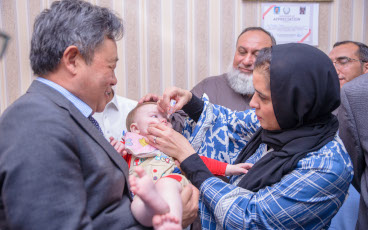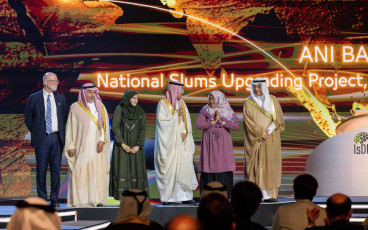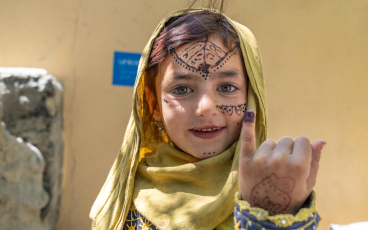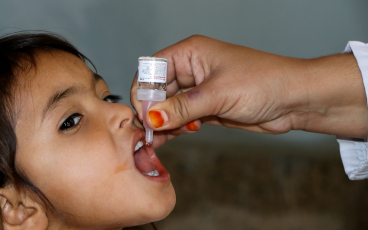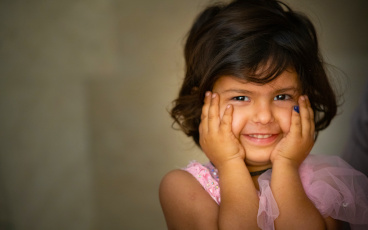50 Years of Impact: How Polio Eradication and EPI Demonstrate What Is Humanly Possible
By Dr Hamid Jafari, Director, Polio Eradication, WHO Eastern Mediterranean Region
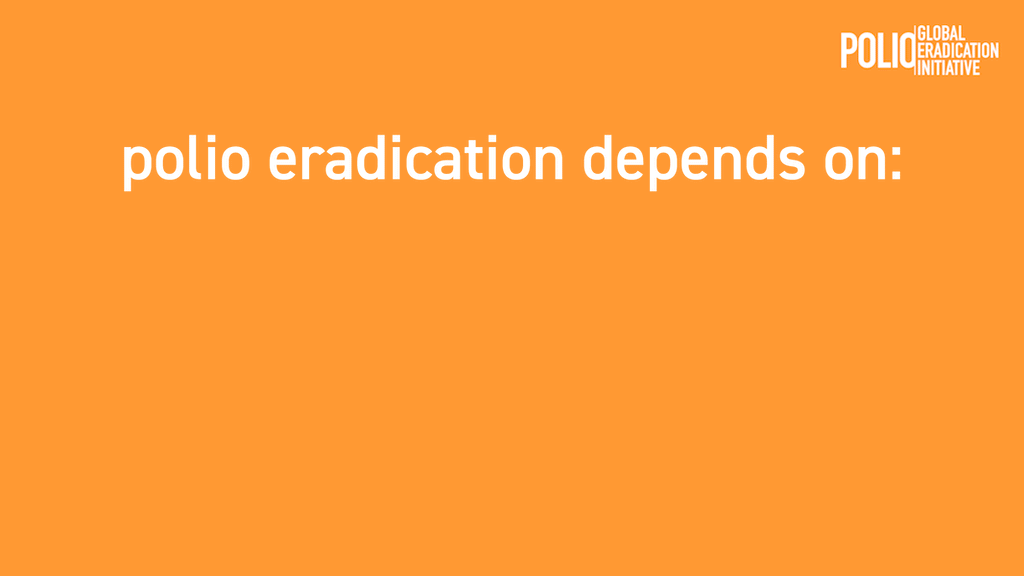
Each year at the end of April, the global community commemorates World Immunization Week, reminding us of what humanity can achieve when we come together and take action for our collective health. Given that I began my career working in a national immunization programme, known as the Expanded Programme on Immunization, also commonly known as the Essential Programme on Immunization or EPI, I am encouraged to see the world mark another, related milestone this year: the 50th anniversary of EPI. Building on the success of the global smallpox eradication effort, EPI was launched in 1974 to expand national routine immunization services around the world and reduce the deaths and disabilities caused by common vaccine preventable diseases. Over the last 50 years, EPI has saved 154 million lives, reduced infant deaths by more than 40 percent, and protected millions from disability. While WHO now recommends 13 vaccines across the life course for the EPI programme, six were recommended at its inception: Bacillus Calmette-Guérin (BCG), diphtheria, measles, pertussis, tetanus, and polio.
Polio has been a part of EPI from the very beginning, and it will be essential for the polio eradication and EPI programmes to continue working together within the Eastern Mediterranean Region and globally as we aim to achieve another eradication goal: ending polio once and for all.
Only one serotype of the wild poliovirus remains (WPV1), and it exists in limited geographic areas within just two countries in the world, Afghanistan and Pakistan. While many national, regional, and global factors have contributed to this progress, a key element has been collaboration between the polio eradication and EPI programmes. Countries in the Eastern Mediterranean Region such as Egypt and Iran have built strong national EPI programmes that maintain high levels of routine immunization coverage to ward off outbreaks, eliminate measles, collaborate with the polio eradication programme to stop outbreaks quickly when detected, and prevent transmission. In countries like Iraq, Libya, Sudan, and Syria, where immunization coverage is lower due to more complex operating environments, polio assets are being transitioned and integrated into the broader EPI programme so that polio programme capabilities in emergency operations and disease surveillance can be applied to controlling other diseases. Additionally, the efforts of the Regional Subcommittee for Polio Eradication and Outbreaks have not only helped make this transition of polio assets a reality, but have also brought Member States together to help both the EPI and polio eradication programmes access more children across the Region.
Global Polio Eradication Initiative partners in Afghanistan and Pakistan, the last two polio-endemic countries, have jointly established health centres and vaccination facilities that provide routine immunization, health check-ups, and polio vaccines in areas lacking facilities. In areas with weak or absent health facilities, health camps are conducted to vaccinate all children. Programmes routinely implement integrated polio and measles campaigns to control both diseases. In Afghanistan, the polio programme began a strategic partnership with humanitarian organizations in 12 high-risk provinces to add routine vaccines including polio into their portfolios of basic health services. More than 1 million polio vaccinations have been delivered through this engagement with humanitarian groups between January and October 2023. And in February 2024 alone, biker teams under the Nomads Vaccination Initiative launched in late 2022 in Pakistan gave polio drops to more than 30,000 children in nomadic settlements in 17 districts, delivered over 11,000 doses of the inactivated polio vaccine (IPV), and administered 12,000 doses of routine vaccines. The biker teams continue to expand the scope of their vaccination efforts.
The planning, operational and monitoring intensity of the polio eradication programmes helps EPI through use of common microplanning tools to map and reach all children, identify zero-dose children, and shine a light on areas with weak or absent immunization delivery. Joint advocacy efforts foster greater political commitment and funding support to improve EPI.
Polio Eradication in the Eastern Mediterranean Region has learned important lessons and gained valuable experiences through ongoing innovations to vaccinate children in countries affected by conflict, insecurity and inaccessibility, fragile health systems and highly vulnerable populations. These experiences have helped EPI programmes in countries like Afghanistan, Pakistan, Somalia, and Sudan. Certainly, more can and should done to leverage the capacities of both the polio eradication and the EPI programmes in such countries.
One of the most critical success factors in polio-endemic countries, across our Region, and around the world has been the exchange of workers between the polio and EPI programmes. Like me, many health workers have started their careers in a national EPI programme and then moved to the polio eradication programme, or vice versa. This exchange of human resources between programmes has led to a sharing of knowledge and experiences that has contributed to the achievements that we have seen in both programmes over the last half-century.
While polio eradication has very specific targets to achieve, the goals of the Global Polio Eradication Initiative (GPEI)and those linked to the Essential Programme on Immunization such as the Immunization Agenda 2030 share many similarities and ultimately depend on establishing and maintaining access to children who have not been regularly reached with any vaccines. I am confident that we can continue to strengthen both the polio eradication and EPI programmes, end polio, and achieve the IA2030 goals and more over the next 50 years. We will accomplish this by advocating for the continued investments needed to end polio and reduce the burden of vaccine-preventable diseases, and by continuing to collaborate and share our expertise and lessons learned, both in the Eastern Mediterranean and globally.



